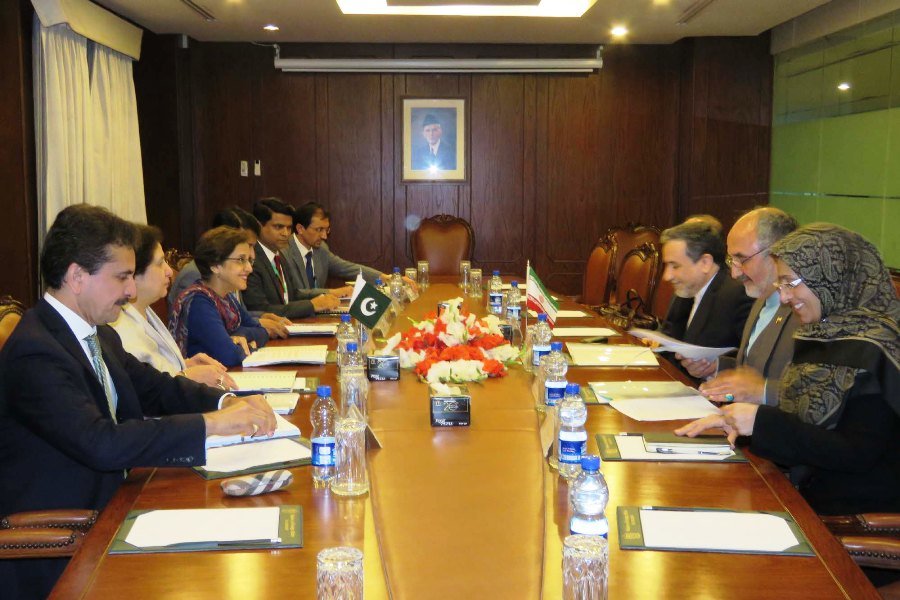Iran, Pakistan vow to expand bilateral trade, reaffirm support for Afghan peace process

TEHRAN - Relations between Iran and Pakistan have improved considerably since the PTI government led by Imran Khan came to power in Islamabad, replacing PML (N) government, which was seen heavily tilted towards Saudi Arabia.
After taking over as the premier of Pakistan some months ago, Khan had spoken with conviction about his government's foreign policy goals and the need to extend a hand of friendship towards Iran.
He even offered to mediate between Riyadh and Tehran, and more importantly, promised to revive the Iran-Pakistan gas pipeline project that had been shelved during the previous government in Islamabad.
To carry the momentum built in recent months, a high-level Iranian delegation led by Deputy Foreign Minister Abbas Araqchi held wide ranging talks with the Pakistani delegation led by Foreign Secretary Tehmina Janjua this week.
The talks were held as part of the 10th round of Pakistan-Iran political consultations in Islamabad.
A working group comprising Pakistani and Iranian officials stressed on peace and reconciliation process in Afghanistan to overcome the “serious security and politico-economic challenges” faced by the region, Radio Pakistan reported.
The two sides agreed to enhance their bilateral trade relations and improve railway connectivity, sources said.
Talks focused on measures to enhance bilateral trade to $5 billion, scaling down of trade barriers and speedy progress on facilitating preferential trade.
They also discussed ways and means to facilitate the growing number of pilgrims travelling every year to Iran from Pakistan.
Araghchi arrived in Islamabad on Monday for the delegation-level talks. Bilateral Political Consultation between the two countries was one of the several important institutional mechanisms to regularly review and chart the way forward in various areas of cooperation.
During the meeting, both sides expressed satisfaction at the continuing warmth in the bilateral relationship anchored in religious and socio-cultural affinities. .
Furthermore, the two sides agreed on a coordinated approach pertaining to Afghan conflict to safeguard interests of Islamabad and Tehran.
Matters pertaining to United State’s withdrawal from the nuclear deal, conflict in the Middle East and violation of human rights in Kashmir were also discussed, according to reports.
Both the countries have been affected by the protracted war and instability in Afghanistan. The two countries host vast majority of Afghan refugees who were driven out of their homes by war.
The two sides noted that supporting the Afghan-owned and Afghan-led peace and reconciliation process was the best way to overcome the security and politico-economic challenges faced by Pakistan and Iran.
A coordinated approach in this regard was important to safeguard the core interests of both Pakistan and Iran in this situation, the two sides noted in their deliberations.
What has brought the two countries closer in recent months is the fact that Pakistan has backed Iran's nuclear deal and resisted the U.S. pressure to cut ties with Tehran. Both Iran and the U.S. have been locked in a bitter tussle in recent months with latter suspending financial aid to the former.
The efforts by the PTI government to revive the Iran-Pakistan 'peace pipeline' has also warmed many hearts in Tehran while raising eyebrows in Riyadh and Washington.
